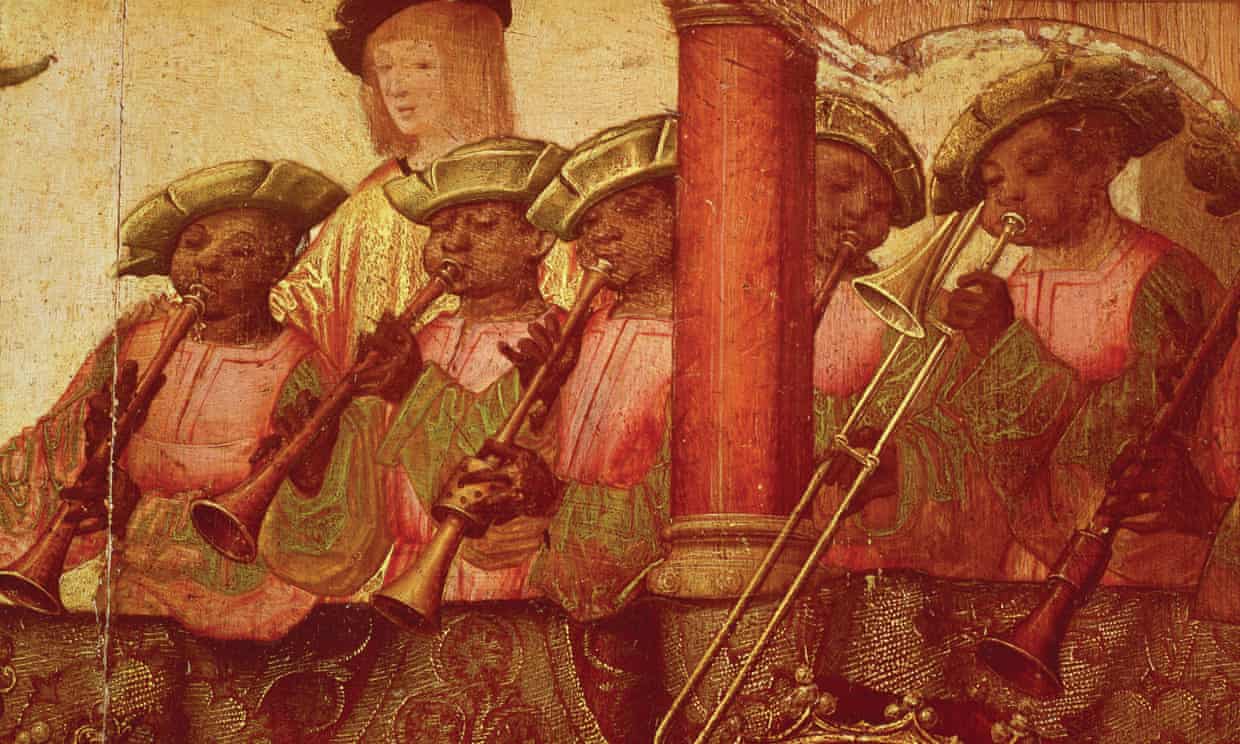Tudor, English and black – and not a slave in sightPosted in Articles, History, Media Archive, United Kingdom on 2017-11-04 22:05Z by Steven |
Tudor, English and black – and not a slave in sight
The Guardian
2017-10-29
 Black musicians in a Portuguese painting of The Engagement of St Ursula and Prince Etherius, c 1520. Photograph: Bridgemanimages.com |
From musicians to princes, a new book by historian Miranda Kaufmann opens a window on the hitherto unknown part played by black people in 16th-century England
Within moments of meeting historian Miranda Kaufmann, I learn not to make flippant assumptions about race and history. Here we are in Moorgate, I say. Is it called that because it was a great hub of black Tudor life? “You have to be careful with anything like that,” she winces, “because, for all you know, this was a moor. It’s the same with family names and emblems: if your name was Mr Moore, you’d have the choice between a moorhen or a blackamoor. It wouldn’t necessarily say something about your race.”
Her answer – meticulous, free of bombast, dovetailing memorable details with wider issues – is typical of her first book Black Tudors: The Untold Story, which debunks the idea that slavery was the beginning of Africans’ presence in England, and exploitation and discrimination their only experience. The book takes the form of 10 vivid and wide-ranging true-life stories, sprinkled with dramatic vignettes and nice, chewy details that bring each character to life.
Africans were already known to have likely been living in Roman Britain as soldiers, slaves or even free men and women. But Kaufmann shows that, by Tudor times, they were present at the royal courts of Henry VII, Henry VIII, Elizabeth I and James I, and in the households of Sir Walter Raleigh and William Cecil. The book also shows that black Tudors lived and worked at many levels of society, often far from the sophistication and patronage of court life, from a west African man called Dederi Jaquoah, who spent two years living with an English merchant, to Diego, a sailor who was enslaved by the Spanish in Panama, came to Plymouth and died in Moluccas, having circumnavigated half the globe with Sir Francis Drake…
Read the entire article here.